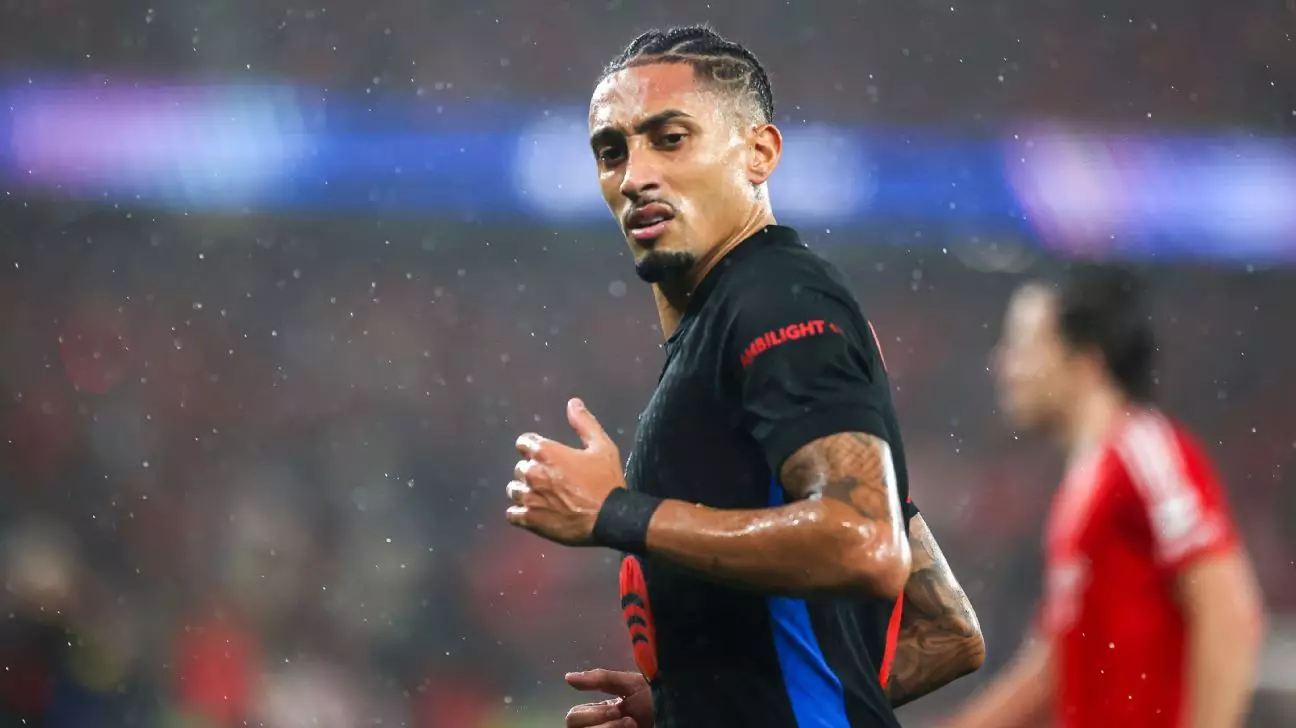In the world of elite football, preparation and timing dictate success. The recent comments from Barcelona’s head coach, Hansi Flick, open a Pandora’s box of issues relating to player welfare amidst unrelenting fixture congestion. His displeasure regarding the clash against Osasuna, following an international break, encapsulates a dilemma that many coaches face: How to balance player rest with the demands of competitive football? Flick’s reaction isn’t merely an expression of individual frustration; rather, it illustrates a broader systemic issue affecting top clubs and their athletes.
The rearrangement of this fixture, originally scheduled for earlier in March, came about under tragic circumstances—the untimely death of the club’s first team doctor, Carles Miñarro. Such events underline the humanity behind the sport, yet the rigid scheduling continues unabated. The implication that clubs must adapt without consideration for the emotional and physical toll on players raises ethical questions about how leagues prioritize competitive integrity over player welfare.
A Grueling Fixture List Ahead
Barcelona now finds itself poised for a challenging run of seven matches in just 20 days. This severe schedule burdens both the players’ physical health and mental suitability, placing Flick in a position where he must navigate through adversity with diminished squad strength. The absence of key players like Raphinha and Ronald Araújo due to international duties further complicates matters. Such adjustments could potentially influence Barcelona’s performance when they are vying for supremacy in La Liga.
Flick’s comments about the lack of recovery time reflect a sentiment that resonates across other leagues. While he pointed out differing practices in other competitive spheres, he implicitly challenges a prevailing culture of overextension. When international breaks culminate in an immediate fixture, it sends a message that the health of players takes a backseat to business interests and fan expectations.
Coaching Through Challenges
In response to the impending fixture against Osasuna, Flick’s decision to eliminate days off for players returning from international duty underscores his proactive approach to ensuring adequate preparation. This decision reflects a broader coaching dilemma—how to manage player fatigue while striving for team success. The necessity of maintaining focus amid such adversity is paramount, but the reality remains: pushing players too hard runs the risk of injury and burnout, which ultimately hampers a team’s long-term capabilities.
Barcelona is competing on three fronts, increasing the pressure on squad depth and talent. The high-stakes nature of this intensity forces coaches like Flick to be conscientious regarding the well-being of their players, and his acknowledgment of the need for improved recovery methods hints at a possible shift in philosophy among football coaches—prioritizing long-term health over short-term gains.
Potential Implications of Fixture Congestion
As the football world evolves, the landscape of scheduling must adapt accordingly. Flick’s criticisms shine a light on how adherents to the football model often overlook the need for player welfare amidst the desire for profitability and viewership. The question lingers: Are the leagues truly protective of their teams and their star players? By prioritizing matches in such a fashion, clubs generally accept a continual cycle of fatigue where performance levels plateau.
The ramifications go beyond Barcelona’s immediate matches; they could set a precedent affecting how leagues schedule their games in the future. How the stakeholders—leagues, clubs, and players—address concerns will determine whether we see a shift in the culture of football prioritizing player health. The growing realization that players are not just assets but invaluable human resources may eventually compel governing bodies like UEFA and FIFA to reassess their policies concerning post-international break recoveries.
As Barcelona looks to tackle Osasuna and beyond, Flick’s challenges serve as a clarion call for a more sustainable approach that aligns business interests with a more humane view toward athlete care.

